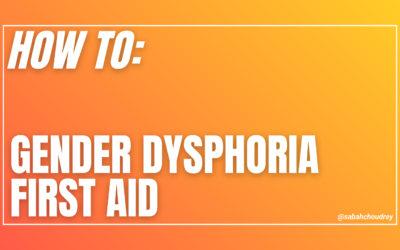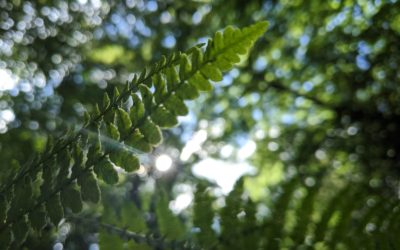Earlier this month, I heard that one of the local international colleges has asked Allsorts Youth Project, where I work, to come in and run a few LGBT awareness workshops with the students. I was really pleased to hear this – most schools in Brighton and Hove have a great relationship with Allsorts and we regularly run LGBT and trans awareness workshops, assemblies and trainings with them. I don’t often go along to these, it’s not really my field; my field being the black and minority ethnic (BME) community, faith/religion and disabilities. But this wasn’t just another school in Brighton and Hove – it was an international school, where all the students are international, and most of them are BME, or people of colour.
I thought this would be a great opportunity to change the traditional view that being LGBT is for white people, and having an LGBT person of colour there in front of them is a great way to increase visibility and smash stereotypes. So I requested that I go. As the lead on schools work was feeling under the weather, I was to replace him, and facilitate a workshop myself with a Peer Educator. There was four of us in total. The first workshop we did was with students under 16 – the first lot of students were 13-14 years old.
I enter the room and in the front row are brown kids. I’m shaking and I stop smiling. Three of them are particularly close, they’re talking in language I don’t recognise, in a tone that is mocking, with a look that is loathing. They are all looking at me.
My colleagues sit down to my left. To the Peer Educator, my friend, who is leading the workshop, I say, “Could you lead on all of it? I just can’t handle doing the introduction and ‘about us’ section, you’ve done this so many times, could you lead on it? I’ll help out, but…” I can’t do this.
I sit down and my friend is about to start the workshop. He is nervous too, despite having done this exact workshop hundreds of times. We are all nervous in fact. We have come to realise too late the ignorance we held when we contacted the college and when we ran through the slides and when we started speaking. We aren’t delivering this to people who speak English as their first language or to UK students. We aren’t delivering this to people who know why saying, “That’s so gay” about something is a negative thing, or to people who understand the complicated definitions of gender or sexuality in a language that isn’t their own. We are nervous because we are embarrassed. Our privilege is definitely showing.
I am sitting down and I am in front of these three boys. I would say they were in front of me, but I am definitely in front of them. I am in front of them and they are watching me. I am on display and I am a spectacle. I realise my sleeves are rolled up to the elbows. It’s not even warm – I roll my sleeves up to assert myself sometimes. It makes me look more masculine; rolling my sleeves up breaks the curved shape of my body and complements the square shape of the top instead. The large cuffs that hang over my slim wrists only emphasize my small, slender hands. So I turn them up.
I know how to hide. I know this through practice.
I realise my sleeves are rolled up to the elbows and I have a large tattoo on the inside of my forearm. It is a visibly Islamic tattoo. It is in Arabic. And I know these three boys can see this too. I casually pull my sleeves down and they fall fast over my wrists. “Can I see this?” This is the first thing the middle boy says to me and points to his own forearm and looks at mine under my sleeve. “Oh, uh, after,” I stutter and mumble. “Show me now,” he demands. The teacher walks in and his attention is quickly diverted.
Blood rushes to my face. I can’t believe I didn’t say no. Pulse quickens. I can’t believe I couldn’t say no. Pounds through my neck.
The session has started. We’re going through the LGBT acronym. We reach T. T for trans. They’re laughing at me. T for torture. They’re insulting me. T for tearing-me-apart. They’re staring at me.
I feel exposed. I feel vulnerable. I feel naked.
I could hide my body under clothes. I hide my wide hips with low-rise jeans. I hide my narrow shoulders with block colours and prints. I could change my posture and change my shape. I hide my curves by sitting with my legs apart, my right foot balanced on my left knee. I could shut my mouth and hide my voice. I hide my effeminate tone speaking low, my mouth barely moving. I know how to hide. I know this through practice.
I could even use a different name and hide my ethnicity. I could try to hide my tattoo fast enough and hide my faith. I know how to hide. I know this through practice.
But I couldn’t hide. I couldn’t cover my features. I couldn’t cover my skin. I am exposed. I am vulnerable. I am naked. I don’t know how to hide my colour. I know this through practice.
It wasn’t the prospect of being associated with the LGBT label that bothered me, or being out as trans; It was the fact that I was already out as a brown person. I am out as a brown person first. I am out and brown and in front of brown people and I am being inspected and investigated. In that moment, I resented myself for being this brown and being this dark. I haven’t had these thoughts in a long time, but I honestly just wished I could have changed my skin colour, to be lighter, to be whiter…
I think it was the combination of the all-too-familiar looks of strangers undressing me with their eyes, with a penetrating look that is determined to figure out what genitals you have and reduce you to those parts, and the silence I had to hold whilst in my professional capacity, that led me to feeling so powerless.
At the end of the sessions, I thought asserting my role to the white British staff would be empowering, or at least combat the stereotypes they hold of people of colour and immigrants. I spoke to the counsellor who sat in a session and seemed chatty. Chatty in the way that straight people love to tell anyone working in the LGBT sector about a gay student who came out to them recently, how open-minded and trustworthy they are, how brave this student was to confide in them, and how they suspected it all along from the way that he spoke… Hold for applause.
She referred this young person to our project so I knew he was finally in safe hands.
I told her about my role, what makes my role different, working with BME young people and providing advocacy support around asylum and immigration issues too, something which is incredibly relevant to this international college. She interrupts me to tell me she’d be more interested in hearing more about my role than the students. As if I am here for her. She tells me she’s “mixed” because she’s travelled around the world, and somehow this gives her corrupt curiosity the permission to follow that up by asking me, “Where are you from?” Blood rushes to my face, pulse hammering in my neck and in my mouth and down on my tongue. “West London,” I continue speaking through my pulverised tongue explaining, “You can find my contact details and information on our website –”
“Culturally, though?”
“– uh, let me just finish what I was saying so you know where to find my e-mail address. Search for allsorts youth dot org dot uk and you’ll find me under the ‘Meet the Team’ tab.” She pretended she got the answer she was looking for and I left to meet my colleagues at the reception area. I can’t believe I didn’t say no. I’m left thinking this once again. I can’t believe I couldn’t say no. I’m left feeling naked once again.
Invaded.
Invaded is the only word I can think of to truly capture how I felt that day. Each part of my identity felt invaded, by these brown boys, by this white woman – my body and my skin colour was theirs that day. And I’m reminded once again who holds the power. I know this through practice.




Every post takes my breath away. I am in love with the way you tell your story.
*blushing!*
Mashallah